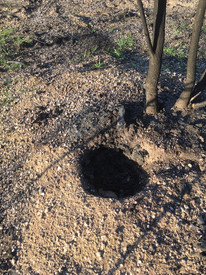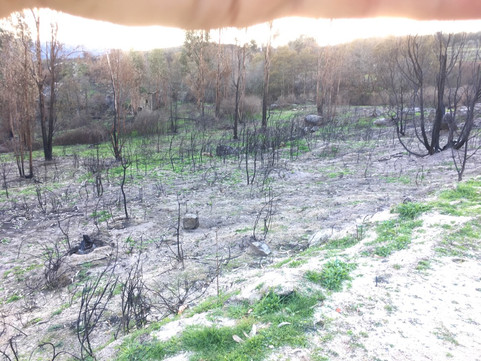Portugal 2018 Homestead Restoration
- Daniel Halsey
- Jan 30, 2018
- 2 min read
Updated: Mar 30, 2019
Traveling to Lisbon and then by train to the town of Oliveira de condé we spent 5 days walking the scorched land of Wim Willems near Vila Mea. After four years of planning and raising funds, a Eucalyptus fire tore through large portions of Portugal and my clients land. The winds blew the hot flames like fingers across the land, missing some areas and engulfing others. Burning embers from the paper-like Eucalyptus bark would fly over canyons starting new fires on the other side. National policies changed, too late for many, forcing restrictions on cultivating this hazardous monoculture crop.
In the resulting state, we have an opportunity to transition this land to a new, at at the same time traditional, use that held it for centuries before the Eucalyptus trade. Rebuilt irrigation ponds and canals, restored terraces, diverse tree crops and species that deter fire would guide the new design and practices. Sustainable harvests in terrace gardens would sustain the residents of the restored stone houses. Last occupied in 1972, the walls are strong, some just needing a new roof and floor. Others will be disassembled in what may be the best recycled building material known, stone blocks cut from local quarries.

The new pond on the highest elevation sends needed water across the property to holding tanks and the new forest seedlings. An enforced 100 meter buffer removes Eucalyptus from residential areas and at least 50 meters from all roads. The main design driver in all cases is distribution of water across the land for renewed woodlands with drought tolerant and fire resilient species.
One benefit from travel is learning the local cuisine and tasting the real flavors and foods of the area.


















































Commentaires